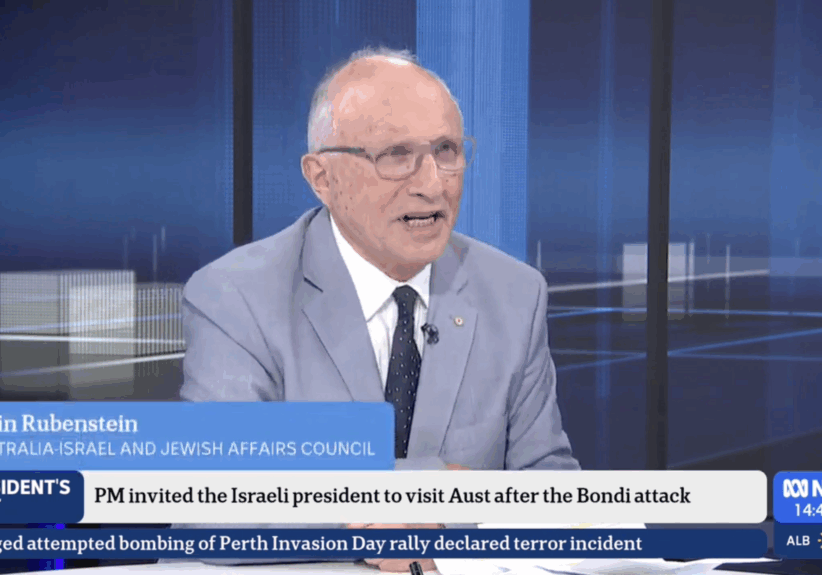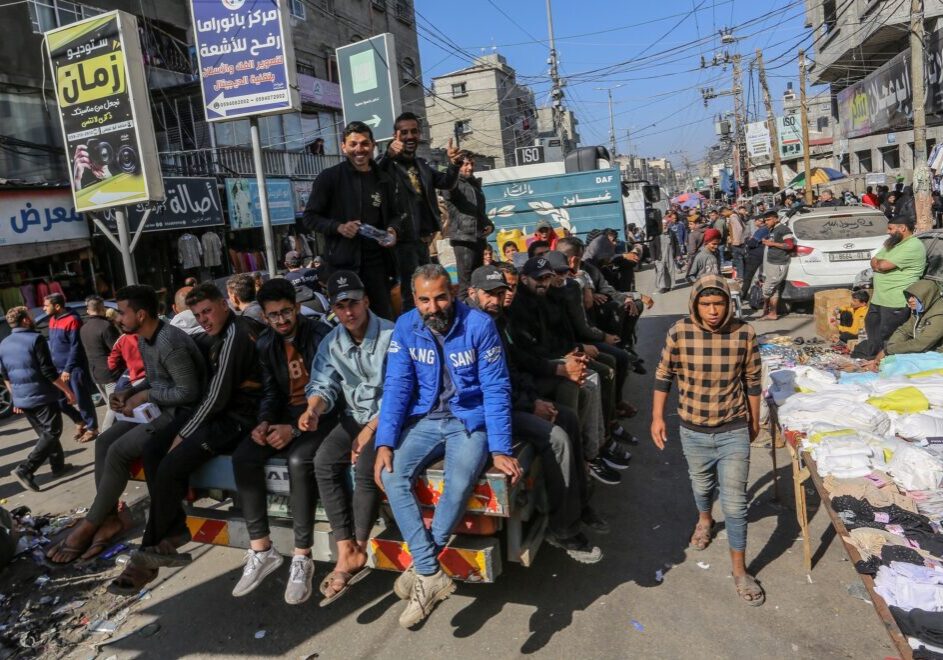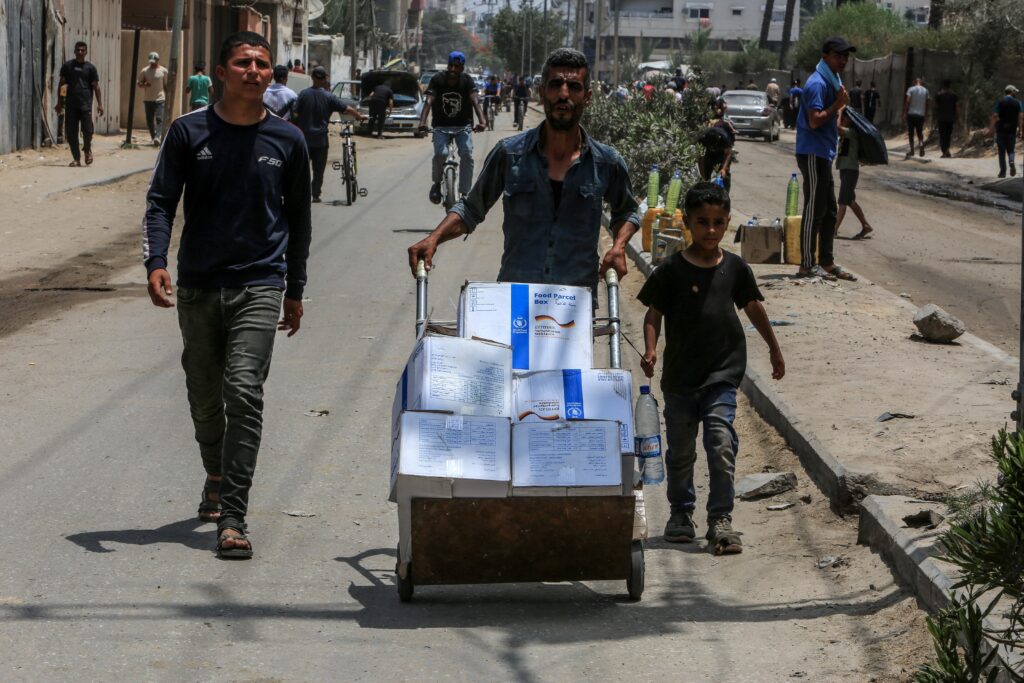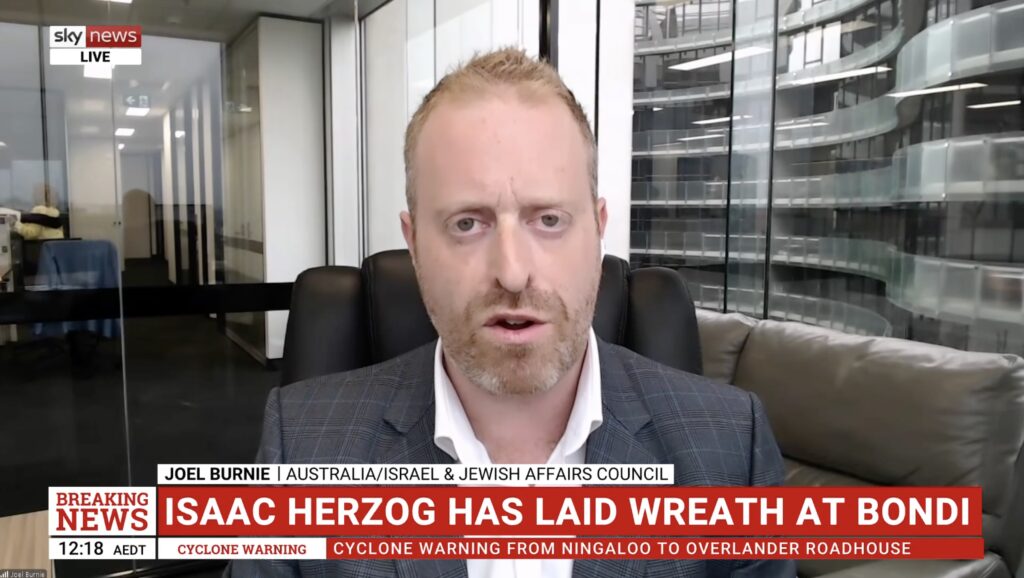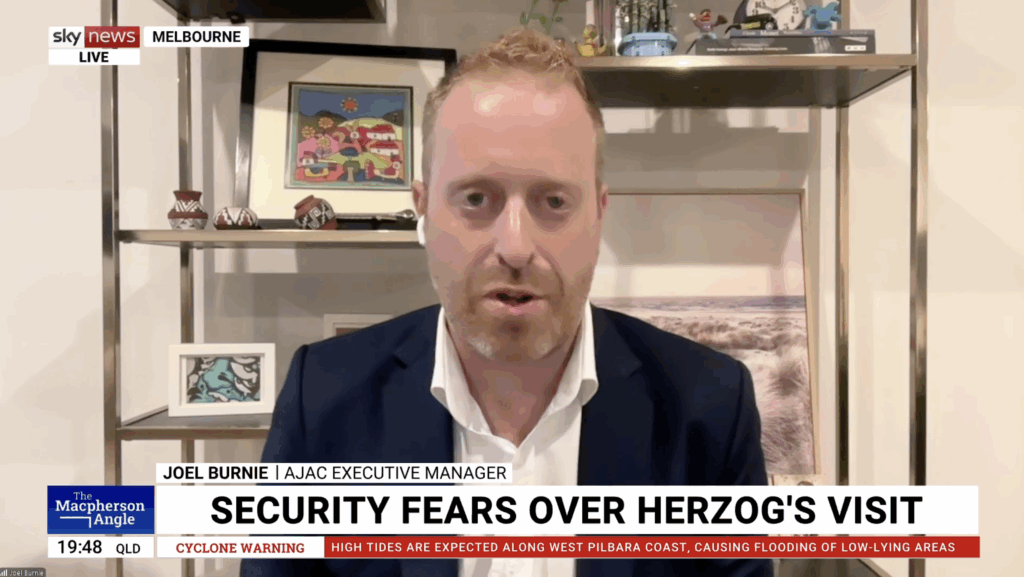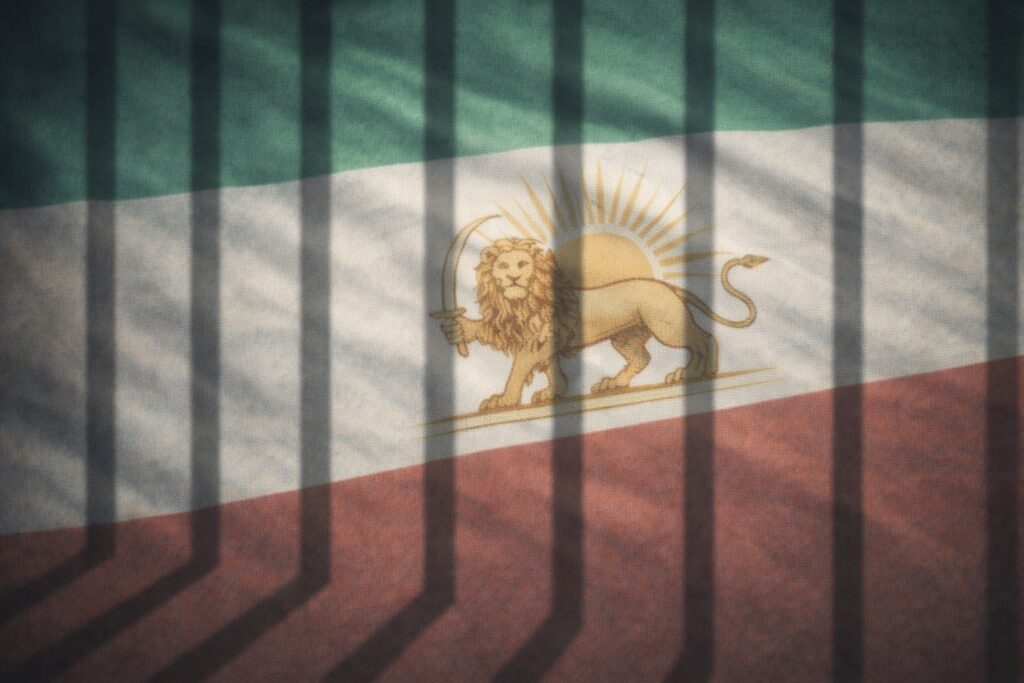FRESH AIR
Palestinians hint at negotiations as Israel mulls extending sovereignty to parts of West Bank
June 12, 2020 | Ahron Shapiro
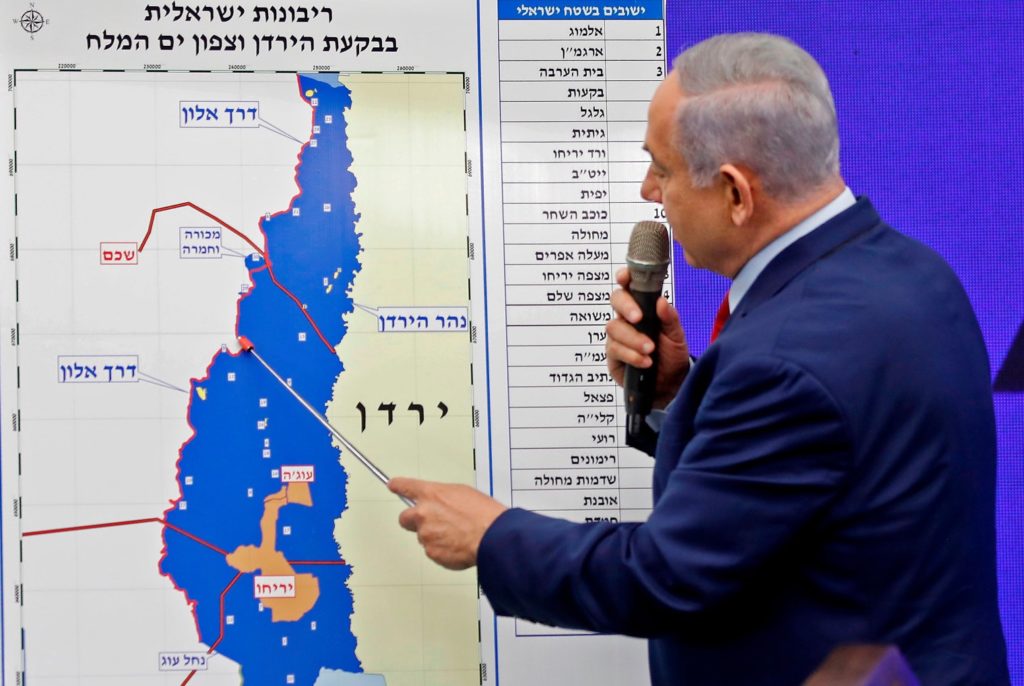
Just weeks since Israel formed its first fully functioning government in a year and half, it is approaching its first big decision regarding the extension of Israeli sovereignty and/or law to the Jordan Valley and some or all of its settlements in the West Bank – territory where Israel claims legitimate rights.
And this debate appears to have sparked a hint of renewed Palestinian interest in negotiating a peace deal, something that has not been in evidence since 2014.
While some casually refer to the proposed Israeli moves as annexation – just as Israel annexed the Golan Heights in 1981 – this is a misnomer. Israeli law views the area inside the historic boundaries of the Land of Israel differently, based on legal claims going back to the San Remo convention of 1920 and the League of Nations mandate for Palestine. Thus, Israel did not “annex” east Jerusalem after the 1967 Six-Day War but extended its sovereignty there.
In any event, Prime Minister Binyamin Netanyahu has vowed to move forward with the process as early as July 1, although he has not clarified what exactly will take place, and other reports say the process may be delayed, perhaps until September. As Times of Israel editor David Horovitz noted in an op-ed published on June 11 broadly critical of taking any major steps:
It’s not entirely clear what Netanyahu really intends to annex: Will he declare Israeli sovereignty over all of the West Bank land allocated to Israel under the Trump administration’s “Peace to Prosperity” proposal, unveiled at the White House in January? Will he focus first on the 132 settlements, with the Jordan Valley to follow later, as he indicated to settler leaders earlier this week? Or will he begin with the main settlement blocs — the Etzion Bloc, Maa’ale Adumim and Ariel — as some Israeli officials have been quoted saying?
These are three very different scenarios, and Jerusalem Post reporter Tovah Lazaroff identified a fourth option in her own analysis, which she grouped as follows: Pursuing all areas allocated to Israel under the Trump peace plan; Annexing just the settlements; Phased annexation starting with the Jordan Valley; and phased annexation starting with some or all of the settlement blocs.
Contradictory reports are coming out of “senior sources” in the Israeli government. Reports Wednesday said that, initially, Israel would only apply sovereignty to three relatively uncontroversial settlement blocs. But yesterday, another reported leak from a senior source denied this, claiming Israel would apply sovereignty to all settlements at once, not just specific blocs.
The uncertainty surrounding the move is largely driven by a lack of clarity from the Trump Administration, whose messaging as Times of Israel analyst Haviv Rettig Gur writes, appears internally conflicted:
As the coalition agreement states, Netanyahu can propose annexation starting July 1 only as “an agreement reached with the US.” The broader implementation of the Trump peace plan must see the government striving to “maintain regional stability, maintain peace agreements, and strive for future peace agreements.”
For those who are looking for answers as to why Netanyahu might be pursuing policy this now, Rettig Gur writes:
[Extension of sovereignty] serves many purposes for Netanyahu. It is politically useful in the contest with other right-wing factions for right-leaning voters. He hopes it will come to be seen by Israelis as a crowning achievement that outshines the tarnish of his corruption trial. And it comes to take advantage of an unusual window of opportunity in the Trump presidency, one that may be closing quickly.
But the main driver of the plan is a more fundamental impulse: He believes it is good policy. Netanyahu’s initiative carefully tracks the boundaries of what most Israelis, including most of Netanyahu’s political adversaries, believe to be the country’s vital strategic needs.
That focus has already paid off; instead of working to disrupt the plan, [Blue and White party leader, Defence Minister and top political adversary to Netanyahu Benny] Gantz and [Gantz’s party colleague Foreign Minister Gabi] Ashkenazi have committed themselves to advancing its most strategically valuable elements while working to minimize international and regional fallout.
Meanwhile, Israel’s impending initiative has apparently managed to spur the Palestinian Authority to submit a four-page counterproposal to the Mideast Quartet in recent days. PA Prime Minister Mohammed Shtayyeh announced at a press conference that the plan provides for the creation of a “sovereign Palestinian state, independent and demilitarized” with “minor modifications of borders where necessary.”
The Palestinian text, which was not immediately made public, kept open the possibility of land swaps with Israel, he added.
Furthermore, Palestinian Authority Foreign Minister recently offered the possibility of peace talks under Russian auspices at a media conference.
If genuine, the proposal would represent the first sign from Ramallah, however faint, of a willingness to negotiate since the failure of the peace initiative led by US Secretary of State John Kerry in early 2014.
Paradoxically, while making a counterproposal to the Quartet that envisions negotiating statehood, at the same time, the main strategy by PA officials has been focusing on threatening to do the opposite and dismantle the PA, re-imposing direct Israeli military occupation on Palestinians who have lived under self-rule for over a quarter of a century.
On June 8, Hussein al-Sheikh, a senior Palestinian official and close adviser to PA President Mahmoud Abbas, told the New York Times:
“I am telling the Israelis, if this situation continues, you will have to take full responsibility as an occupying power. It could go back to like it was before Oslo.”
Tags: Israel, Palestinians, West Bank, peace, settlements
RELATED ARTICLES

Herzog visit an important expression of solidarity with our traumatised community: Joel Burnie on Sky News
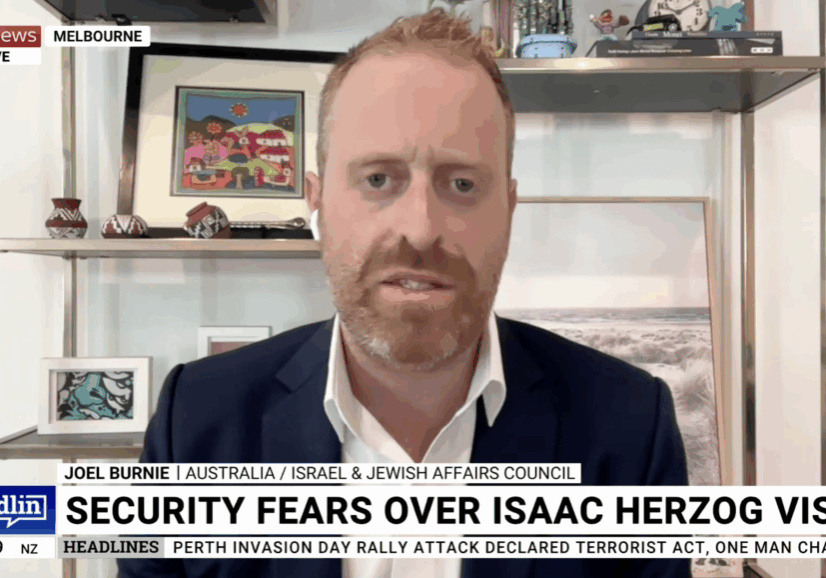
Security concerns over Herzog visit a terrible indictment: Joel Burnie on Sky News
